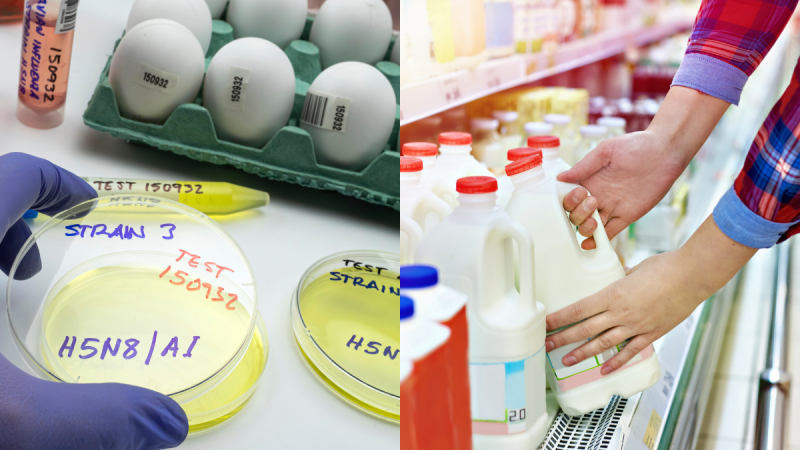The Food and Drug Administration (FDA) in the United States has raised eyebrows after finding traces of the bird flu virus in roughly 20% of milk samples tested in a nationwide study. While this news may cause concern for consumers, the FDA maintains there’s no immediate risk associated with consuming milk.
Traces Found, But No Immediate Risk
The presence of genetic fragments from the virus, specifically H5N1, doesn’t necessarily indicate active or infectious bird flu in the milk supply. Pasteurization, a standard milk treatment process, effectively destroys viruses and bacteria. However, the FDA acknowledges the need for further testing to determine if the detected fragments represent intact, infectious viruses.
This finding does highlight the potential spread of bird flu among dairy cattle to a greater extent than previously thought. The official count, as of April 25th, stands at 33 infected herds across eight states: Idaho, Kansas, Michigan, New Mexico, North Carolina, South Dakota, Ohio and Texas. However, the high percentage of positive milk samples suggests a wider circulation of the virus. Public health experts like Dr Richard Webby from St Jude Children’s Research Hospital believe this signifies “a whole lot of this virus is out there.”
Also Read: Bird Flu Cases Reported In Kerala Alappuzha; Here Are Some Preventive Measures To Stay Safe
What You Can Do to Stay Safe
The FDA is working alongside the Department of Agriculture (USDA) to address the situation. New regulations have been implemented, mandating bird flu tests for dairy cattle before interstate transportation. Additionally, the USDA will reimburse farmers for testing their livestock, including those without symptoms.
For those feeling uneasy, several steps can promote peace of mind. Staying informed by following updates from the FDA and USDA is crucial. Furthermore, practicing good hygiene, especially thorough handwashing before and after handling food including milk, is always a wise precaution. Finally, if you’re particularly concerned, opting for plant-based milk alternatives until the situation develops further is a viable option.
Also Read:Jharkhand: Govt Issues Alert After Bird Flu Cases Hit State-Run Poultry Farm; Bans Chicken Sale
Experts emphasise the safety of pasteurized milk. The FDA assures consumers that they’re taking necessary steps to monitor the situation and maintain a safe milk supply. If any developments suggest a potential risk, they will inform the public promptly.
Cover Image Courtesy: Canva (Representative Image)

